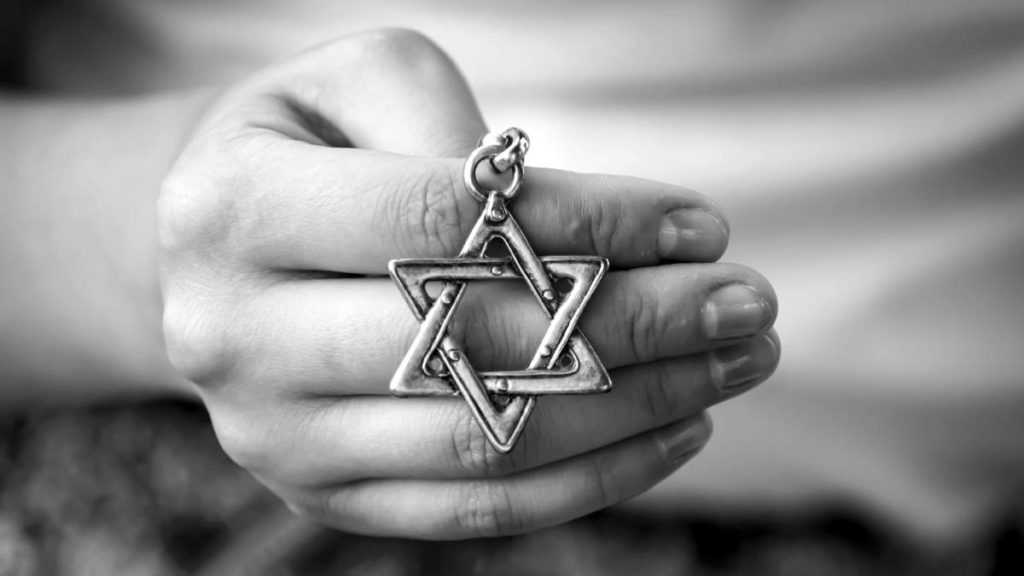IN THE MEDIA
Australia embracing the International Holocaust Remembrance Alliance’s Working Definition of Anti-Semitism
November 2, 2021 | Jeremy Jones

Canberra Times – 2 November 2021.
The announcement by Prime Minister Scott Morrison, at the Malmö International Forum on Holocaust Remembrance and Combating Anti-Semitism, that the Australian “government”, “people” and “nation” will “embrace” the International Holocaust Remembrance Alliance (IHRA) Working Definition of Anti-Semitism, is very welcome.
As part of the Australian delegation to the Stockholm Forum on Holocaust Remembrance 2000 conference, I participated in the groundwork for the Working Definition.
In a series of subsequent high-level deliberations in Sweden and around the globe, I played a small part in the development and formulation of the IHRA Working Definition and have observed the way it has assisted law enforcement, education institutions, legal tribunals and many other bodies to better deal with a serious problem.
The process took close to two decades, and was transparent and democratic, drawing on documentation agreed to by parliamentarians from many countries, academic bodies and both governmental and intergovernmental agencies.
The term for anti-Jewish hatred and contempt is anti-Semitism, a word English has adopted from German and which at no time has had a meaning other than animus towards Jews.
The Working Definition notes different jurisdictions will have a variety of regulations and processes, and does not enter into complex areas such as the boundary between free speech and freedom from speech which has a demonstrable deleterious effect on another individual.
By any measure, and despite many shortcomings, the Australian celebration of religious, cultural and ethnic diversity has given members of different communities opportunities and the ability to contribute to the nation in almost an unparalleled way.
Sadly, there have also been people in Australia, and people impacting on Australia from abroad, who try to divide our nation and promote contempt for, discrimination of and even harm against others, and their targets include members of the Jewish community.
The definition, which was adopted as the non-legally binding Working Definition of Anti-Semitism by the International Holocaust Remembrance Alliance in 2016, reads: “Anti-Semitism is a certain perception of Jews, which may be expressed as hatred towards Jews. Rhetorical and physical manifestations of antisemitism are directed toward Jewish or non-Jewish individuals and/or their property, toward Jewish community institutions and religious facilities.”
The definition is accompanied by a number of examples which can serve as illustrations of its contemporary manifestations. Noting “criticism of Israel similar to that levelled against any other country cannot be regarded as anti-Semitic” it states the obvious: some who claim to be simply involved in critique of the state or its government invoke racist stereotypes and myths, at worst demonising and dehumanising, and at best adopting extreme double standards towards, the Jewish people in the process.
There has been some confected outrage which alleges the examples provide some sort of evidence that the aim of this definition is to further a political agenda. As someone with first-hand knowledge of the processes and the people involved, I can testify the single driver of the development of the definition was concern with real-world experiences of anti-Semitic phenomena.
The examples were designed for assisting the work of tribunals, institutions with codes of conduct, law enforcement and others, but did not suggest the introduction of any new restrictions on speech or behaviour.
In Australia, the violence of language and action of terrorist organisations such as Hamas and Hezbollah, the vile language of prominent political figures in countries such as Iran, and among some opponents of Israel in this country, have included vile stereotyping, misrepresentation and defamation.
The proliferation of conspiracy theories and slanders in online and other discussions of the coronavirus and of an array of contentious political matters sometimes have promoted anti-Jewish myths using clear and unambiguous language, or used coded language which is understood by the ideologically initiated and their targets, but sometimes needs to be explained to others.
It has been encouraging to hear the many voices, across the political spectrum, including Anthony Albanese and Alan Tudge, who have publicly acknowledged the problem of anti-Semitism in Australia and the utility of the Working Definition in responding to it.
The Australia/Israel & Jewish Affairs Council, the Executive Council of Australian Jewry, the Zionist Federation of Australia and other mainstream Jewish organisations in Australia have affirmed the Working Definition would greatly assist in identifying, understanding and responding appropriately to manifestations of anti-Semitism.
Now the Working Definition has been “embraced”, the challenge will be to ensure it is applied in ways which will ensure robust and informed debate on public policy matters, while providing recourse for victims of anti-Semitism.
- Jeremy Jones is director of international and community affairs at the Australia/Israel & Jewish Affairs Council. He was the winner of the 2007 Australian Human Rights Medal.





